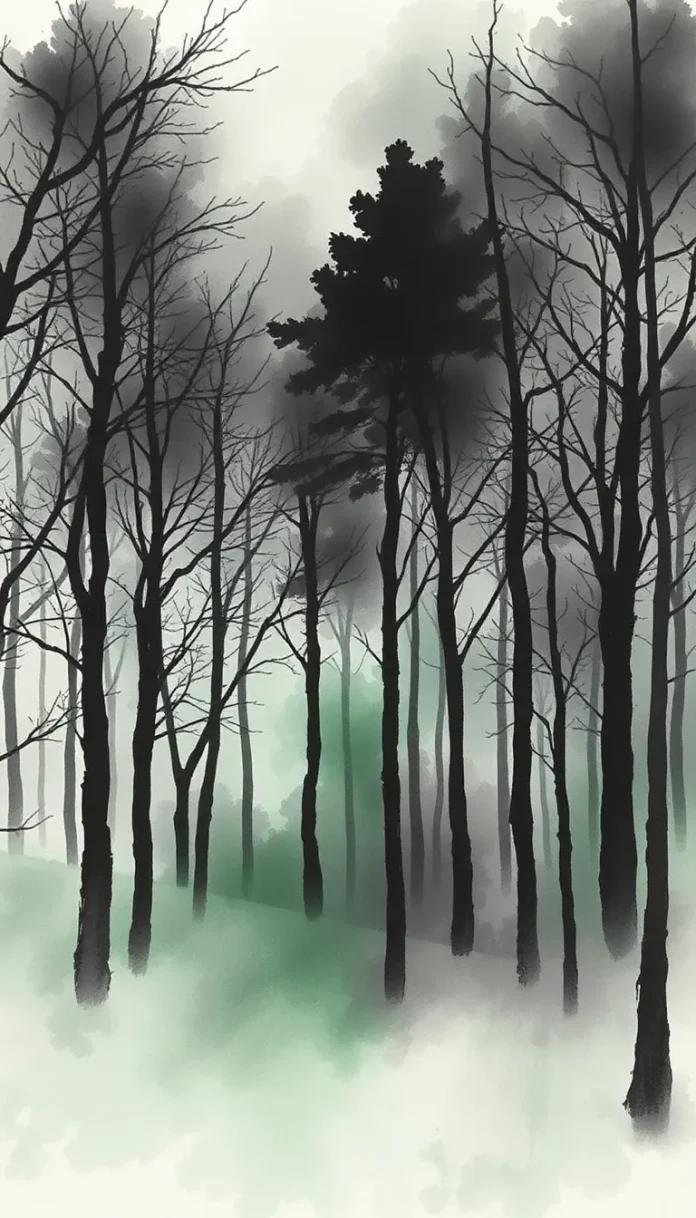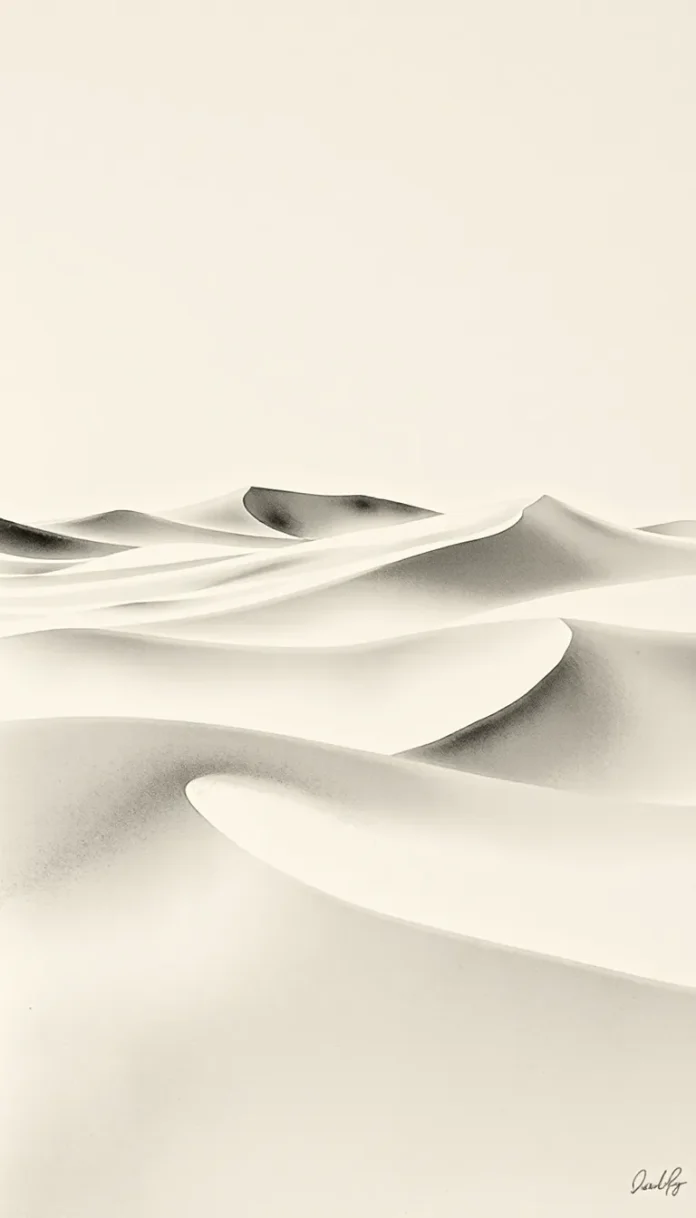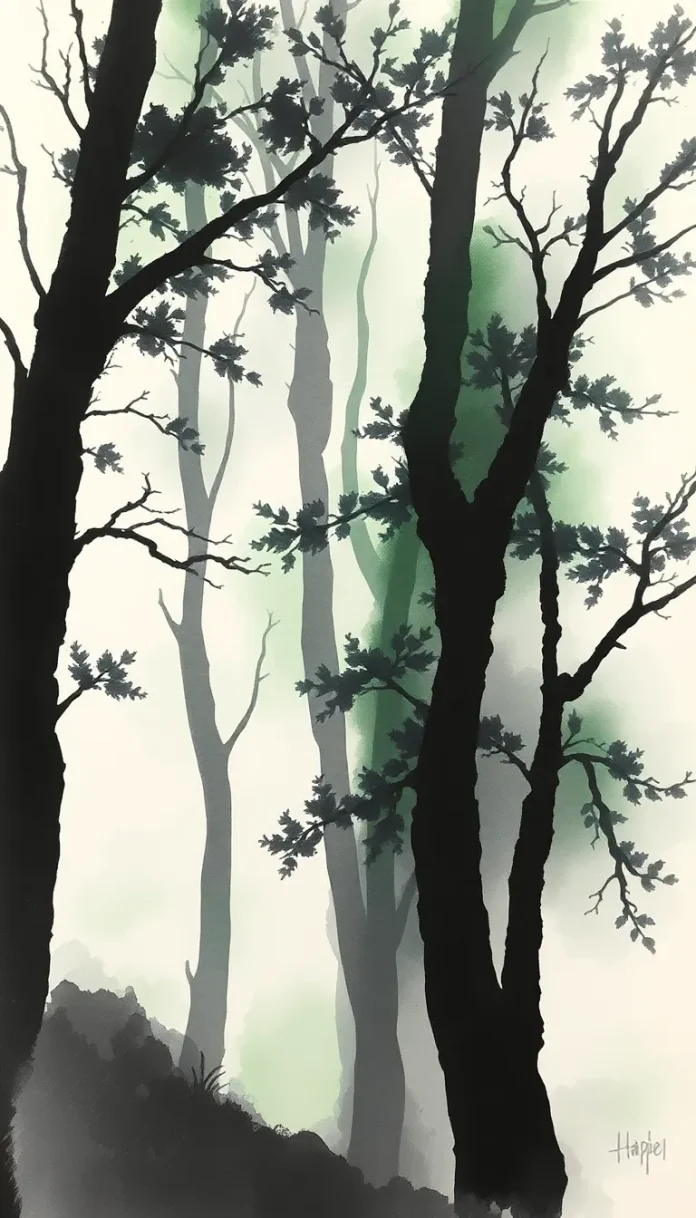The Isle of Unseen Colors
Where gulls carve arcs through mists that never end,
There dwelt a soul whom Time had forged in fire—
An artist bent by visions, yet entire.
His hands, like driftwood gnarled by tides’ embrace,
Scribed silent hymns to beauty’s fleeting trace.
No mortal eye beheld his vaulted dreams,
Save winds that read his scrolls in spectral streams.
Beneath the moon’s pale loom, he’d chisel stone,
To freeze the flight of hours in flesh and bone.
Each marble vein, each contour kissed by light,
Confessed the ache of shadows born of night.
Yet none ashore would linger near his door,
Where waves lamented what they’d lost before.
“Madman,” they hissed, “who wastes his breath on dust,
While seas grind cliffs to salt and bones to rust!”
One eve, as autumn donned her ashen shroud,
A shipwreck cast a stranger from the crowd.
A scholar, steeped in lore of ancient lands,
With eyes that held the stillness of stilled sands.
He stumbled to the artist’s moss-bound lair,
Where candles wept their gold upon the air,
And there beheld—transfixed, as though entranced—
A gallery where heaven’s light was danced.
“What hand,” he breathed, “could wrest such grace from strife?
What soul dares court eternity with life?”
The artist turned—his gaze a storm restrained—
And murmured low, “You see what Time disdained.
These forms are but the echoes of a cry
That rose when stars first pierced the vaulted sky.
They’ll fade, like footprints where the tide has trod,
Unmarked, unmourned—save by the patient sod.”
Through frost-rimed nights, the pair forged fragile bonds,
While winds rehearsed their dirges past the ponds.
The scholar traced each chisel’s ardent sweep,
As though to map the depths where angels weep.
“Your art,” he pled, “must cross this barren shore—
The world should kneel where beauty bleeds no more!”
But grim the sculptor shook his twilight head:
“The world? It loves its garlands, not the dead.
What use to fling these orphans to the storm,
When none still hold the keys to hearts grown warm?
Let Time, that thief, reclaim his borrowed gold—
These children of my dusk shall die unsold.”
Yet still the scholar pressed with fervent tongue,
Till promises, like April’s buds, were sprung:
“One moon hence, I’ll bear your ‘prentice’s creed
To lands where kings and clowns alike may bleed.”
Dawns bled to dusk; the scholar’s craft was hewn—
Each stroke observed, each secret tremor known.
But as the moon’s last sliver kissed the sea,
A cough wracked through the scholar’s failing frame.
No herb, no plea could stay the creeping chill
That gnawed his breath to whispers thin and shrill.
“My friend,” he gasped, “the hour claims its toll…
Yet swear—your art shall breach this prison’s hole!”
The artist clasped his hand—a vow half-made—
Then watched the light within those eyes degrade.
He buried him where cliff and cloud conspire,
And set one statue—blind, but strung with lyre—
To guard the grave where hope’s last seed was sown,
Then turned to face his exile, now alone.
Years crawled like snails o’er tombstones slick with moss;
The sculptor’s hands grew still, eclipsed by loss.
One morn, a brigantine with sails unfurled
Cast anchor where the scholar breached the world.
A youth emerged—the scholar’s mirrored face—
And sought the master of that sacred space.
He found but ruins where the workshop stood,
And marbles veiled in ivy’s mournful hood.
Among the weeds, one figure stood intact:
A youth whose eyes held futures still unpacked,
His lyre poised to wake some unborn dawn,
With base inscribed: “To worlds where art lives on.”
The stranger knelt, his cheek caressed by rain,
And whispered words the dead might hear again.
Then, hiring men to load the fractured trove,
He sailed ere nightfall, bearing phantoms’ love.
Now in grand halls, that resurrected stone
Draws gasps from crowds who name it grief’s mad throne.
They praise “the unknown hand, now lost to years,”
While, on the isle, the tide still drinks the tears
Of one who carved his soul into the shore,
Where scholar’s dust and artist’s dream encore
Their duet for the gulls’ lone audience—
Time’s cruel ballet of shadow and pretense.
There, on the cliff, two weather-worn stones lean,
Their epitaphs erased by salt and spleen.
The sea, that bard who croons all things to rest,
Still sings the anthem of the unblessed:
“What man may chain the wind, or cage the flame?
All tongues fall mute; all hearts shall break the same.
The noblest art, in Time’s vast, grinding wheel,
Becomes the sand that mourners never feel.”


